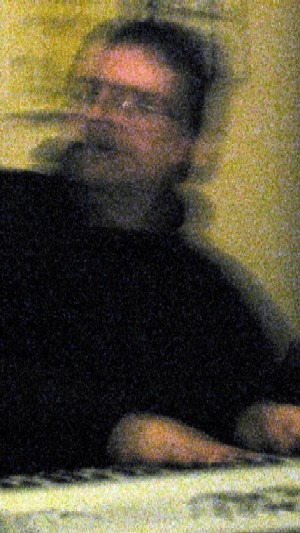Syd Barrett Former lead singer of Pink Floyd whose drug-induced breakdown and reclusive retirement created a musical legend Alan Clayson
Tuesday July 11, 2006
Guardian Unlimited
Syd Barrett, the maverick frontman and creative force behind early Pink Floyd, who has died from cancer aged 60, was the ultimate of pop recluses. His departure from the band in 1968 - then on the threshold of global eminence - and his retirement as a professional musician to lead an outwardly unproductive life was on a par with, say, Mick Jagger leaving the Rolling Stones in 1964 to live quietly with his parents.
The fourth of five siblings, he was born Roger Barrett in Cambridge. If blighted by the death of his father, a hospital pathologist, his upbringing was more liberal and steeped in culture than most. Before he graduated to Cambridge High School, he showed promise as a classical pianist and, more so, as a visual artist. However, intrigued by an elder brother's skiffle combo, he taught himself guitar, mostly by playing along to records. He and a kindred spirit, David Gilmour, practised together, but did not progress much further than talking about starting a group.
It was around this time that Roger acquired the nickname "Syd". At 16, he was playing with local beat groups, sometimes sharing a stage with bass guitarist Roger Waters. On obtaining respective scholarships at Camberwell Art College and Regent Street Polytechnic, Barrett and Waters moved to London where their band, the Pink Floyd, smouldered into form, with Barrett, Waters, drummer Nick Mason and Rick Wright on keyboards.
The gradual introduction of adventurous self-written material and lengthy monochordal improvisations made them popular fixtures in the capital's underground clubs where light shows simulated psychedelic experience. Snapped up by EMI, their debut single, Arnold Layne, was, as expected, self-consciously "weird" - and a Top 30 entry, despite airplay restrictions. The follow-up, a tartly-arranged See Emily Play - also composed by Syd - climbed to Number Six. Perhaps more satisfying for the group was recognition by the Beatles, who looked in during a Floyd session for 1967's groundbreaking The Piper At The Gates Of Dawn. The maiden album was penned almost entirely by the charismatic Barrett, who, as a guitarist was as capable of severe dissonance as serene, if echo-laden, melody, and whose vocal style was as English as Elvis Presley's was American.
With the other personnel keeping pace, he'd gone far into the cosmos and back musically with Astronomy Domine, and disconnected with Earth altogether on Interstellar Overdrive. Moreover, Gnome, Matilda Mother, Flaming and medieval-flavoured Scarecrow cornered pop's gingerbread castle hour more effectively and instinctively than, for example, the Beatles' Lucy In The Sky With Diamonds.
Fortunately for the Fab Four, a now drug-addled Barrett was already proving ill equipped to cope with pop stardom, particularly after a troubled US tour and the disappointment of a flop third single, Apples and Oranges. In 1968, David Gilmour was enlisted as the increasingly unreliable Barrett's understudy and then his successor during the making of a transitional second album, A Saucerful Of Secrets. Although happier as concert performers, Pink Floyd - as they were now called - were initially at a loss without Barrett's input.
Attempting to master his more absolute inner chaos, Barrett released two curate's egg solo albums in 1970, The Madcap Laughs and the more focused Barrett, with help from members of Soft Machine, Humble Pie - and Pink Floyd, and was persuaded to undertake disinclined promotional stage appearances. Eventually, he returned to Cambridge where he fronted a trio called Stars, who struggled through a solitary official booking at the city's Corn Exchange in 1972.
The years left to Barrett were almost perversely unremarkable. Though he was known to be a painter, he neither exhibited nor sold any work. Nevertheless, a legend took shape, bringing out strange stories, the most verifiable of which was of Barrett presenting himself, portly and shaven-headed, in the studio when Pink Floyd were recording the 1975 album Wish You Were Here - which included the Barrett tribute Shine On You Crazy Diamond.
Since then, intrusive press photographs of Barrett have portrayed him looking as middle-aged as his now multi-millionaire colleagues. In the teeth of dull truth, Barrett continued to fascinate countless fans as well as record company moguls, scraping the barrel for anything on which he so much as breathed - such as the big-selling 1993 CD box set, Crazy Diamond, incorporating hitherto-unreleased tracks.
Barrett's income of invalidity benefit and fluctuating royalties was buoyed by tributes paid by other artists, most conspicuously David Bowie who revived See Emily Play on his 1973 Pin-Ups album, and more recently Arnold Layne which he performed with David Gilmour in London. Yet few of the faithful expected or even wanted Barrett to make a comeback, no matter how rejuvenated or contemporary. They preferred him as an ever-silent, "no return" saga rather than one in which he was likely to try and fail to debunk the myth of an artistic death.
· Syd Barrett (Roger Keith Barrett, musician, composer, born January 6 1946; died July 7 2006




